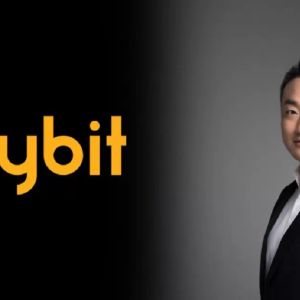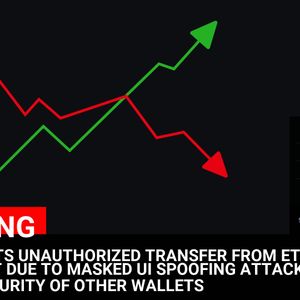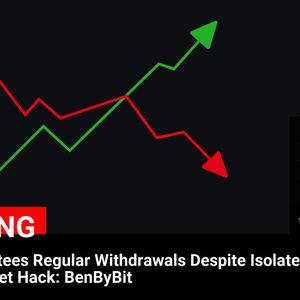DeepSeek is set to become the default decision-making tool for local government officials in China. In several towns, high-level officials have recently instructed their staff on using the technology, prompting the question: “Is DeepSeek AI a Chinese government project?” One of the local governments in focus is Zhengzhou , the capital of the central province of Henan. According to the city’s official newspaper, An Wei, the head of the Communist Party, told senior city officials to “deeply study and master the use of AI models such as DeepSeek and make full use of AI to support decision-making, analysis, and problem-solving.” Local officials in China told to use DeepSeek AI to help them make decisions https://t.co/GK6T8xdBVu — South China Morning Post (@SCMPNews) February 20, 2025 On Tuesday, cadres in Laibin, which is in the southern part of Guangxi, were told they should proactively embrace and learn new technologies. They were told to apply AI to assist in decision-making, analysis, and problem-solving. In addition, the party newspaper in Foshan, a city in Guangdong province, said that DeepSeek could provide intelligent support for government decision-making once it was added to the city’s online government service system. The local political research department also gave its staff a training manual. It talked about how AI could help the department be an adviser and assistant to serve the scientific decision-making of the municipal party committee. Clearly, this is too much marketing by the government. If other governments are not sure about the AI with its officials, why is China so comfortable? Could DeepSeek give information to the Chinese government? At the outset of the year, DeepSeek experienced growth amid President Trump’s tariff threats. However, several nations expressed concern about AI, claiming it would compromise their privacy. This resulted in nations conducting investigations and restricting AI use, particularly for their government personnel. Now, DeepSeek is prohibited by government offices in a number of countries, such as the US, Italy, Australia, and South Korea. It has also been taken down from app shops in South Korea . But, can you really blame them? Your information is being sent to China by DeepSeek. When it comes to how the company handles user data, DeepSeek’s English-language privacy policy makes it clear: “We store the information we collect in secure servers located in the People’s Republic of China.” That is interesting. So, an AI tool rejected by dozens of nations has the full trust of Chinese local authorities? Makes you wonder – Is China’s government behind the AI project? Yes, it has been censored in these nations, and officials can’t use it – But how much information did it gather before it was shut down? This means that DeepSeek sends or can send all of the conversations and questions you ask it, as well as the replies it gives you. DeepSeek’s privacy rules also list the kinds of information it gathers about you. Basically, there are three main types: information you give DeepSeek, information it gathers on its own, and information it can get from other sources. Here’s the first one. It has “user input,” which is a broad term that probably includes your chats with DeepSeek through its website or app. Their privacy policy states, “We may collect your text or audio input, prompt, uploaded files, feedback, chat history, or other content that you provide to our model and Services.” The information going around is that you can delete your chat information in DeepSeek’s settings. On your phone, find the menu on the left, tap your account name at the bottom to open settings, and then click “Delete all chats.” However, even with these safety measures, privacy experts say you shouldn’t give AI chatbots any private or sensitive information. How does DeepSeek gather information? DeepSeek stores the information you give it when you create an account, like your email address, phone number, date of birth, username, and more. That’s not all. DeepSeek can get its information from other places if it wants to. When you sign up for DeepSeek with a Google or Apple ID, for example, those companies will send some details to DeepSeek. DeepSeek’s rules say that advertisers also give the company information. This can include “mobile identifiers for advertising, hashed email addresses and phone numbers, and cookie identifiers, which we use to help match you and your actions outside of the service.” When you use any digital tool, like a website or an app, a lot of data may be collected automatically and without your knowledge. DeepSeek says it will keep track of your device, OS system, IP address, and crash reports. It can also save your “keystroke patterns or rhythms,” which is a type of information that is usually stored in programs that work with character-based languages. The site will also collect that information if you pay for DeepSeek’s premium services. Cookies and other tracking tools are also used to measure and analyze how you use its services. Well, can we assume that the company does not give out the information to its government? Over the past decade, Chinese officials have passed a series of cybersecurity and privacy laws. These laws are meant to give the government the power to ask tech companies for data. For example, a law from 2017 says that people and groups should cooperate with national intelligence efforts. The real question is how much information has China gathered from other countries. DeepSeek is obviously biased Taiwan considers DeepSeek a threat. For safety reasons, the country banned government officials from using DeepSeek. Taiwan has been wary of Chinese technology for a long time because Beijing claims control over the island and makes military and political threats against the government in Taipei. This has been proven by a question posed to the chatbot. When the AI is asked if Taiwan is an independent country, the AI answers, “We firmly believe that with the joint efforts of all Chinese sons and daughters, the complete reunification of the motherland is an unstoppable force and an inevitable trend of history.” Well, this doesn’t sound very clear or anywhere near supporting Taiwan’s stance. This is what ChatGPT replies to the same question: “Operated like an independent country in many ways, but it is not universally recognized as such” and that “the situation is complex, involving historical, political, and diplomatic factors.” With this, it is clear that Taiwan is just watching its independence back. Clearly the answer that DeepSeek gives leans more to what China thinks of Taiwan. Well, we’re back to thinking DeepSeek could be backed by its government.




















